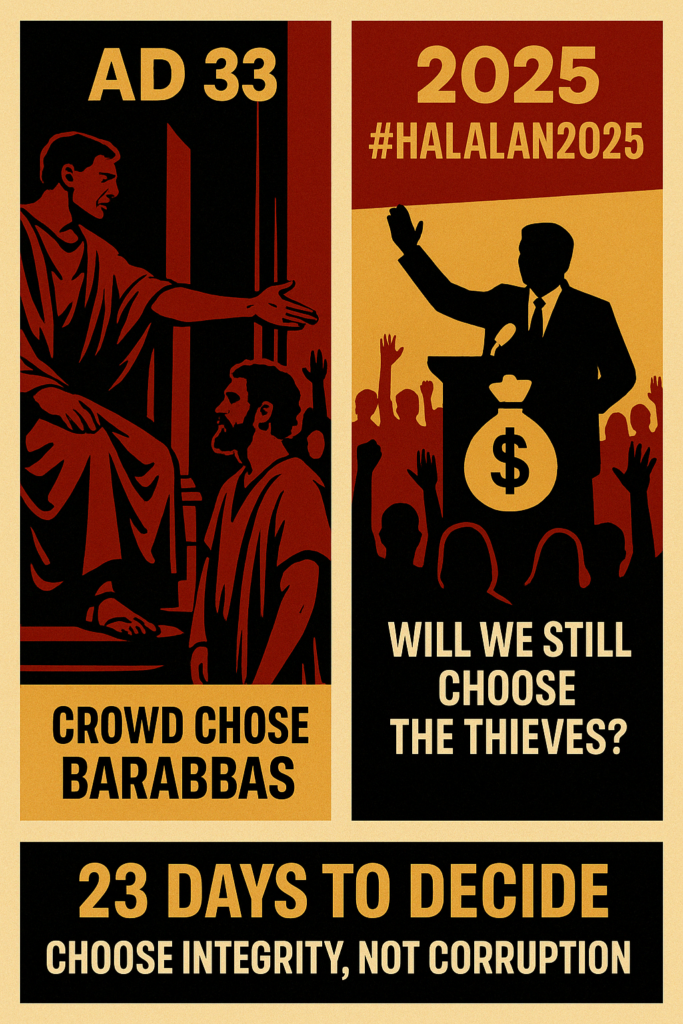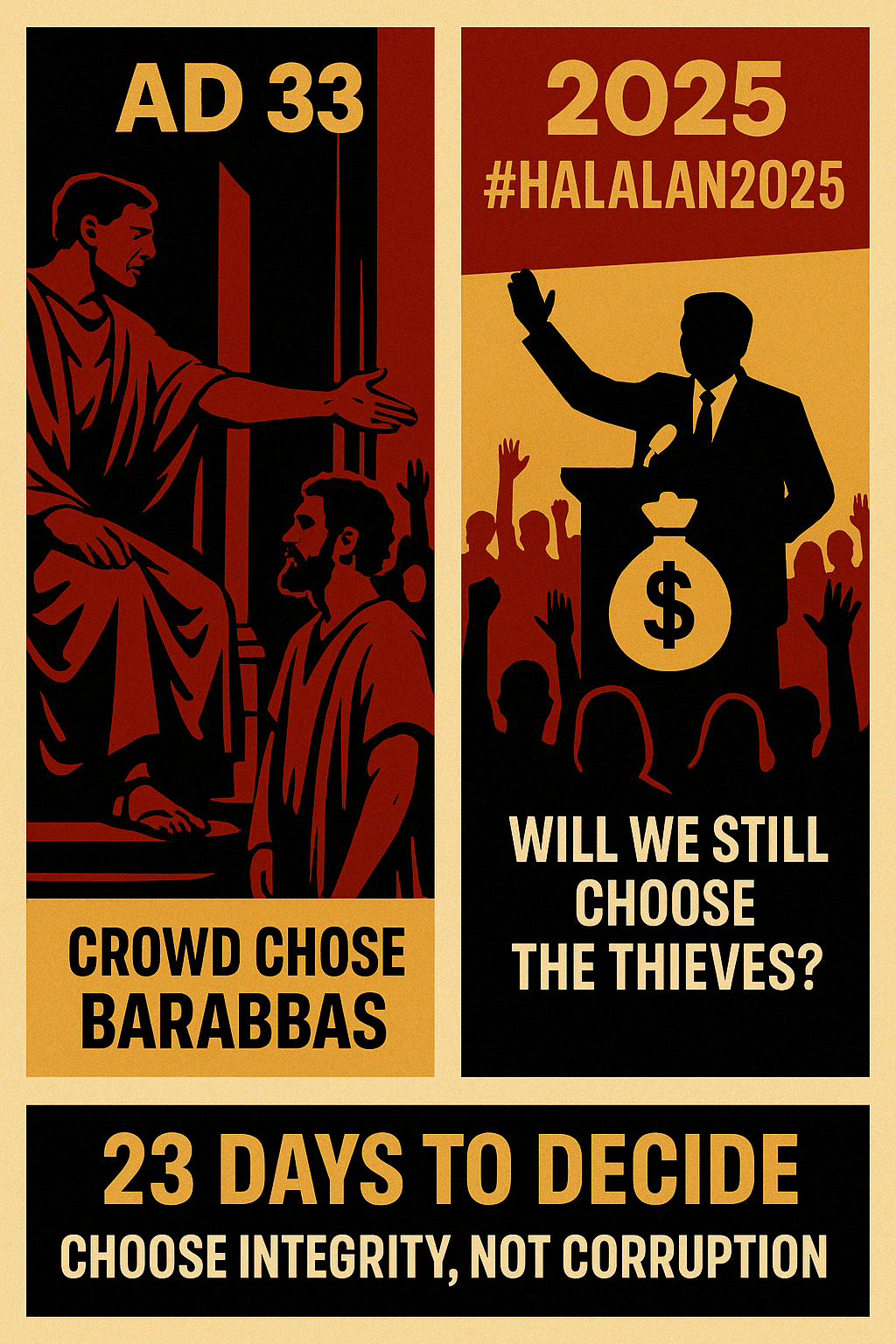The Crowd & the Crossroad
Nearly two thousand years ago, Jerusalem woke to a strange Paschal morning.
The air was thick with rumor, the streets jammed with pilgrims, soldiers, traders—and a single, ancient question: Whom will you choose?
Act I | The Governor’s Balcony
Pontius Pilate, Rome’s uneasy prefect, stepped onto the stone balcony of the Praetorium. Before him surged a restless crowd. Two prisoners stood nearby:
- Jesus of Nazareth — known for healing the sick, lifting the lowly, and preaching a kingdom built on justice and mercy.
- Barabbas — a convicted thief and rebel, infamous for violence against both Roman power and innocent bystanders caught in his raids.
Pilate offered the customary Passover pardon: “Which of the two shall I release to you?”
The crowd roared—not for the teacher who made the blind see, but for the brigand who had taken what was not his.
“Barabbas!”
Stunned, Pilate washed his hands, as if cleansing himself of the choice.
Jesus was led to the cross, and the people returned to their homes—believing the day’s decision changed little in their lives. Yet history would record that moment as the hour a nation traded truth for expedience, hope for habit, principle for noise.
Act II | Our Balcony—#Halalan 2025
Fast‑forward twenty centuries; the venue has shifted from a Judean courtyard to every barangay gym, social‑media feed, and campaign stage across the Philippines. But the essential elements remain:
- Candidates with genuine vision and competence—often soft‑spoken, sometimes imperfect communicators, yet proven in service and integrity.
- Candidates wrapped in charisma and cash—their coffers fat, their slogans slick, their pockets lined by the very resources meant for the public good.
Again the question rings out: Whom will you choose?
We stand 23 days from #Halalan2025, holding a ballot instead of shouting in a crowd. The ink of our pens will echo louder than the shouts outside Pilate’s hall. And the stakes are no less cosmic for our children’s future:
- Choose competence, and we pave roads that actually reach the barrios, build classrooms that don’t leak, and pass laws that uplift the poorest.
- Choose corruption, and we normalize the “Barabbas bargain” all over again—trading community clinics for kickbacks, coastal sanctuaries for sand‑mined fortunes, and scholarship funds for personal slush accounts.
Act III | A Final Reflection
Jerusalem’s crowd never read tomorrow’s headlines; they judged by the noise of the moment. We, on the other hand, have history’s rear‑view mirror—and still the temptation persists to pick the thief, because:
- He’s familiar (“daghan siyag tarpaulin”).
- He’s generous—today (“daghan siyag pakals / handa”).
- He’s funded by patrons who expect payback—tomorrow.
But every peso slipped under a table is a peso stolen from a hospital bed, every vote purchased is a voice of conscience silenced, every wink at wrongdoing is another nail driven into the nation’s hopes.
“Easter is God’s gentle whisper that every tomb of despair can become a doorway to new life.”
Let’s treat May 2025 as our own Resurrection morning—the chance to roll back the stone of corruption and step into governance that truly serves.
The Choice, Once More
In a matter of days someone will ask you, “Who should we let go forward?”
Will we again free Barabbas and crucify the future, or will we finally elect leaders whose hands are clean of plunder and whose hearts beat for the common good?
A bleak future awaits if we keep choosing thieves.
A blessed future dawns if we choose builders, healers, and honest stewards.
The balcony is ours now.
The crowd is us.
And the decision—this time—cannot be washed away.




